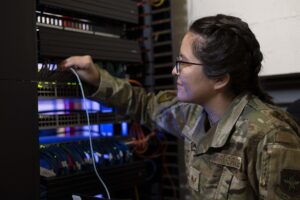
The San Franciso-based DeepMedia said on Nov. 28 that it has won two U.S. Air Force Phase I Small Business Innovation Research (SBIR) awards worth $150,000 for the detection of deep fakes--artificial intelligence (AI)-enabled creations of fake video and audio content that appear real. "These federal contracts will lay the foundation to ensure the U.S. and its allies continue to strategically operate at the forefront of AI-assisted technologies, such as synthetically generated media while helping to weed out misinformation and…














